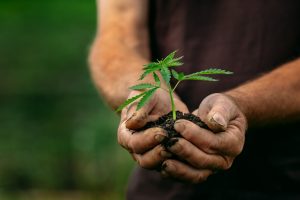By now it is quite safe to say that everyone has heard about the Coronavirus (COVID-19) pandemic. There also has been an incredible amount of information thrown out to the public in a very short amount of time – some of it being accurate and some not too accurate. We also have heard alot about the steps that need to be taken in order to help decrease the spread of this new virus. What I would like to accomplish right now though is to give everyone a little background information about the coronavirus family. I would also like to shed a little light as to why isolation and all of the other steps that are being taken are so important.
Viruses have been around for a heck of a lot longer than humans, (approximately 2 Billion years versus around 200 thousand years for humans!!) and there are a lot of viruses and viral families in today’s world – with the coronavirus being one of them. This family of viruses get their name from the way that they appear under the microscope, an electron microscope to be a bit more accurate. Coronavirus can affect both humans and animals such as chickens, cows, different species of birds, bats, and dogs just to name a few mammals. The virus tends to produce a spectrum of virulence which ranges from symptoms similar to the common cold, all the way to what we are seeing in some immunocompromised patients. When comparing the “aggressiveness” of some of the newer strains versus the older strains it does appear that the newer strains tend to be more aggressive. Keep in mind though that this is a very common generalization.
One thing that has stuck in my head is when my microbiology professor asked all of us the reason why we think that viruses have been around so much longer than humans. Answer: They are extremely good at survival.
Viruses and bacteria have a tendency to shift or mutate their genetic makeup in order to be able to exist in whatever environment they are currently in. The more “things” that viruses can “infect; the better its chance of survival. The first time that we discovered the coronavirus was in 1960 when it affected a large number of chickens with viral bronchitis. As time went on we continued to find the virus affecting other mammals until it started to affect humans. The key thing to remember is that the more the virus is exposed to a different environment (otherwise known as a host), the greater the chance of it adjusting its genetic makeup (RNA) so that it can not only survive but THRIVE in whatever it has infected. A virus will essentially take over our normal cells and make it produce vast amounts of virus, which in turn will go and infect other cells. With time and exposure in our body, our immune system develops a blueprint on how to kill the virus and get it out of our bodies. This is what we know as immunity or building up a tolerance.
When a virus that affects a certain mammal, for example chickens, continues to get exposed to another mammal, like humans, the virus will eventually mutate and be able to take over our cells. So now, if we put a few things together, the exposure to different mammals, and the desire of that virus to live we end up with a new strain of a virus affecting us for the first time. Our immune system has never seen the virus before so it has no answer on how to “kill” the virus. This leads to some of the awful results that we are seeing right now. If we can either slow or stop the transmission of the virus to those that have never had it then we can limit the amount of people that can potentially get sick. This is why all of these procedures and public restrictions have been put in place.
I hope that this gave some of you some general information about viruses, particularly the coronavirus and why we need to take the steps needed to limit the transmission of the virus to one another.
Dr. Wilfredo Gamez is a board certified physician experienced in Critical Care and Surgical ICU, and he is also the Clinical Director at Peake ReLeaf. Have a question you’d like him to answer on our blog? You can email him at will [at] peakereleaf.com.






